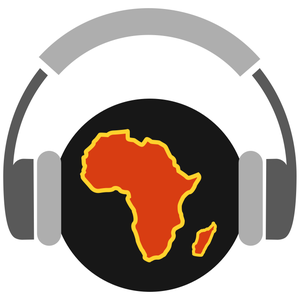
Africa Past & Present » Afripod
Africa Past and Present
The Podcast about African History, Culture, and Politics
- 37 minutes 8 secondsEpisode 137:
Afis Ayinde Oladosu (Department of Arabic and Islamic Studies, University of Ibadan) on being and becoming Muslim in Nigeria and Africa. Dr. Oladosu reflects on his journey to academia, positionality at Ibadan, and experiences as a Gates Fellow in the U.S. He then discusses his MSU African Studies Center seminar presentation and comments on the role of religion in Nigerian politics. The interview concludes with a look at Dr. Oladosu's current research projects.
25 November 2024, 12:00 am - 39 minutes 27 secondsEpisode 136:
Lauren Jarvis (History, University of North Carolina Chapel Hill) on her new book, A Prophet of the People: Isaiah Shembe and the Making of a South African Church (Michigan State University Press, 2024). Dr. Jarvis discusses the remarkable life of Shembe, the building of a religious community of people left behind by industrial capitalism, strategies of evasion, and the key role of women in the church. She then reflects on written, oral, and visual sources, white authorities’ anxieties about the Nazaretha church, and what happened to the community after Shembe’s death in 1935.
2 October 2024, 12:00 am - 50 minutes 27 secondsEpisode 135:
Michelle Sikes (Kinesiology, African Studies, and History, Penn State University) on her new book, Kenya’s Running Women: A History (Michigan State University Press, 2023). The conversation begins with Sikes's journey from NCAA champion and professional runner to Rhodes scholar and academic. She then delves into the book's main arguments and sources and methods. Sikes elaborates on women athletes' biographical narratives and transformational changes in global athletics since the 1990s. The interview closes with a discussion of gender-based violence, what makes Kenyan runners great, and the impact of sports on the broader quest for Black freedom, equality, and justice.
11 June 2024, 12:00 am - 47 minutes 43 secondsEpisode 134:
Neo Lekgotla laga Ramoupi (History, University of the Free State) on his new book, Cultural Resistance on Robben Island: Songs of Struggle and Liberation in South Africa (Skotaville 2024). After discussing the genesis of his scholarly interests, Dr. Ramoupi describes prisoners’ music— instruments, genres, styles—and its impact on surviving apartheid’s harshest prison. He then reflects on the relationship between prisoners and guards, and changes in Robben Island prison culture over time. The interview closes with Ramoupi’s reflections on the film, Amandla! A Revolution in Four-Part Harmony, and a preview of his new Mellon Foundation-funded research project.
23 May 2024, 12:00 am - 45 minutes 59 secondsEpisode 133:Peter Mark (Emeritus, Art history, Wesleyan Univ.) on his personal and scholarly journeys through precolonial Mande worlds. He shares insights from decades of experience working with an eclectic range of primary sources and archives. He then discusses the history of a Portuguese Jewish diaspora in Senegal and Afro-European identities. The interview closes with Mark’s preview of his latest research on trade and culture in Casamance and Guinea-Bissau, from the 15th to the 17th centuries.10 December 2021, 12:00 am
- 47 minutes 57 secondsEpisode 132:
Marissa Moorman (Univ. of Wisconsin-Madison, African Cultural Studies) on Angolan social history and media studies. We discuss the evolving trajectory of her scholarship, research in southern Africa and Portugal, and her latest book, Powerful Frequencies: Radio, State Power, and the Cold War in Angola, 1931–2002. The interview features a musical interlude (courtesy of Paulo Flores). It closes with insights on Moorman’s public-facing work with Africa Is A Country and provides a sneak peak into her current book project.
27 September 2021, 12:00 am - 55 minutes 57 secondsEpisode 131:
Historian Jessica Marie Johnson (Johns Hopkins Univ.) digs into her award-winning new book, Wicked Flesh: Black Women, Intimacy, and Freedom in the Atlantic World. The conversation brings out how Black women in Senegambia, the Caribbean, and Louisiana devised ways to gain control over parts of their lives and defined freedom for themselves in the age of slavery and the slave trade. The interview closes with Dr. Johnson’s thoughts on LifexCode: Digital Humanities Against Enclosure, which she directs, and on the critical role of ethical collaborative scholarship in academic endeavors.
22 June 2021, 12:00 am - 42 minutes 54 secondsEpisode 130:
Dr. Gerard Akindes discusses his experience playing and coaching basketball in West Africa and Europe, and the new Basketball Africa League. He considers the role of “electronic colonialism” in the sport media landscape and then reflects on his work advancing African scholarship through research publications and through Sports Africa, a coordinate organization of the U.S. African Studies Association that he co-founded in 2004.
24 March 2021, 12:00 am - 47 minutes 48 secondsEpisode 129:
Dr. Chambi Chachage (Princeton) discusses his intellectual journey from Dar es Salaam to Cape Town, Edinburgh, and Cambridge, Mass., his book manuscript on the history of Black entrepreneurs in Dar, and the changing role of digital humanities in the field of African studies. The interview concludes with Chachage’s insights on the controversial recent elections in Tanzania.
14 December 2020, 12:00 am - 34 minutes 26 secondsEpisode 128:
Cherif Keita (French and Francophone Studies, Carleton College) reflects on his life as a scholar from Mali and on his documentary films about John Langalibalele Dube and Nokutela Dube, founding figures of the African National Congress of South Africa. The interview closes with a discussion of musician Salif Keita’s journey from social outcast (as an albino) in Mande society to icon of world music.
11 December 2019, 12:00 am - 35 minutes 20 secondsEpisode 127:
Kim Yi Dionne (Political Science, UC Riverside) on her recent book, Doomed Interventions: The Failure of Global Responses to AIDS in Africa; the controversial May 2019 elections in Malawi, where she served as an observer; and hosting the Ufahamu Africa podcast and co-editing the Monkey Cage politics blog at the Washington Post.
Follow her on Twitter at @dadakim.
5 November 2019, 12:00 am - More Episodes? Get the App
Your feedback is valuable to us. Should you encounter any bugs, glitches, lack of functionality or other problems, please email us on [email protected] or join Moon.FM Telegram Group where you can talk directly to the dev team who are happy to answer any queries.
 Scene on Radio: Capitalism
Scene on Radio: Capitalism
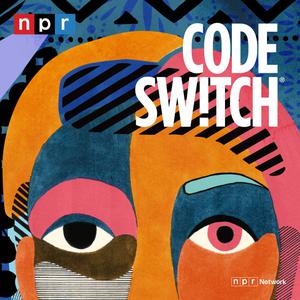 Code Switch
Code Switch
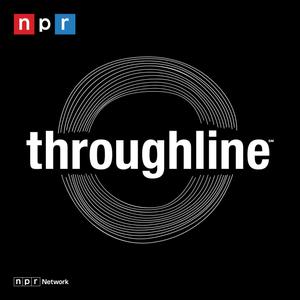 Throughline
Throughline
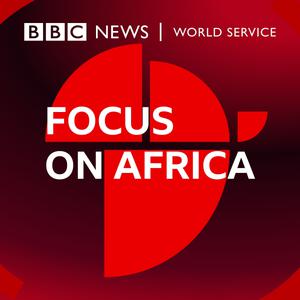 Focus on Africa
Focus on Africa
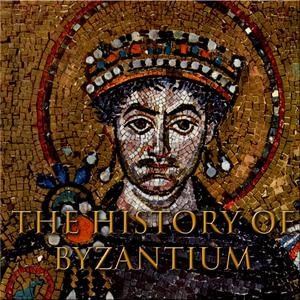 The History of Byzantium
The History of Byzantium
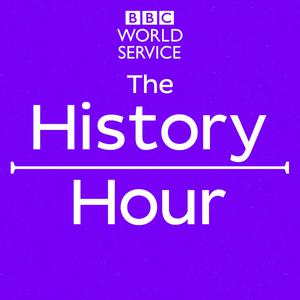 The History Hour
The History Hour